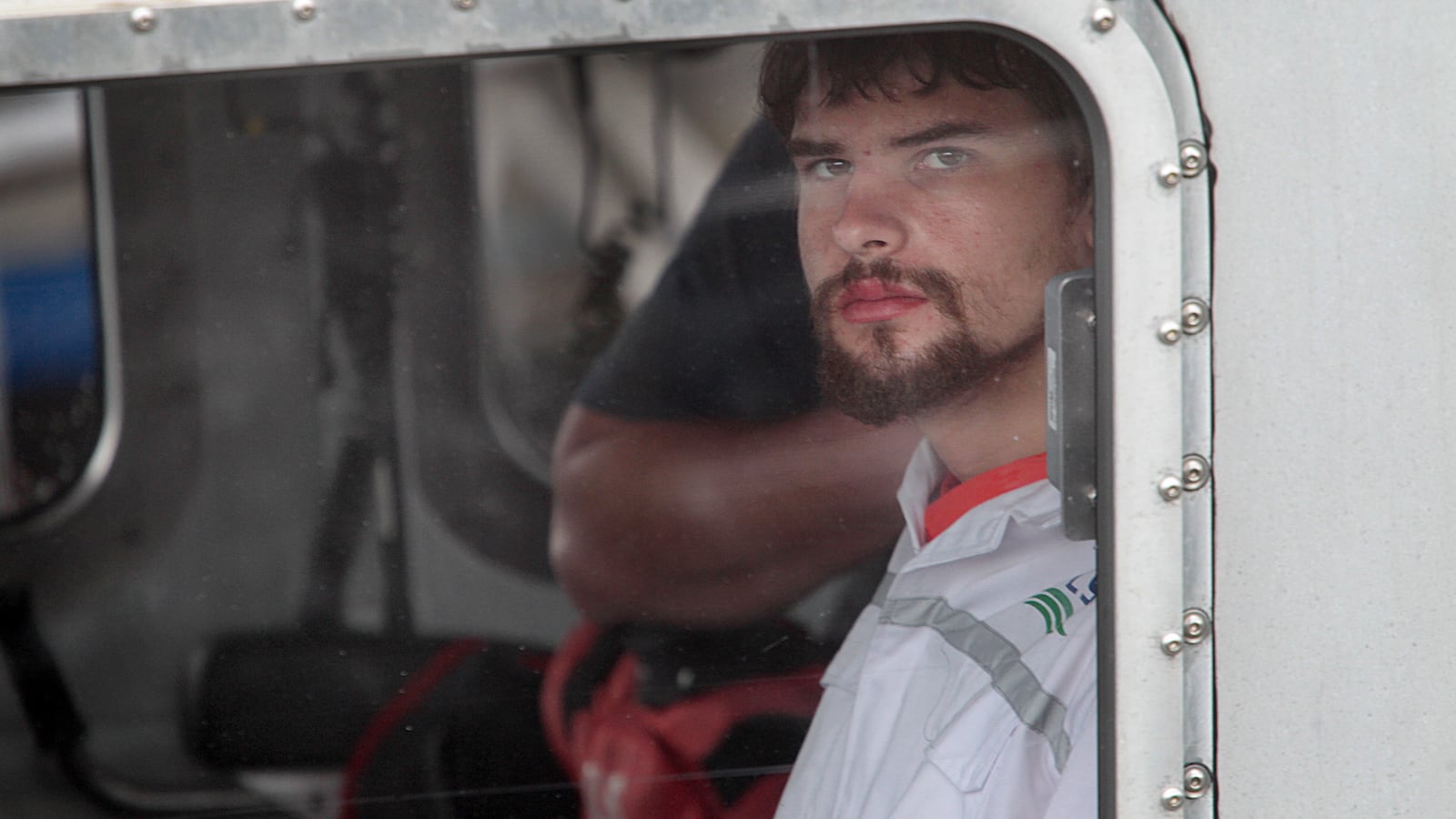When Linda Carman accepted an offer from her 22-year-old son to set out on what she believed would be a pleasant mom-and-son fishing trip in September 2016, she couldn’t have known how it would all go horrifically wrong. The vessel sank and Linda disappeared at sea, leaving her son, Nathan, to float adrift on a life raft for eight days before he was rescued, professing that he was grief-stricken and had nothing to do with the tragic accident.
Federal authorities believed otherwise. And on Tuesday, six years later, the U.S. Attorney’s Office in Vermont announced that Nathan Carman, now 28, had been arrested and charged with his mother’s sordid murder, as well as “related frauds to obtain family and insurance funds.”
An unsealed indictment, first delivered by grand jury on May 2, also accused Carman of fatally shooting his sleeping grandfather, a man named John Chakalos, in 2013. The two alleged murders “were part of a scheme to obtain money and property from the estate of John Chakalos and related family trusts,” prosecutors said.
Chakalos was a rich man, having made “tens of millions of dollars” in real estate development, according to the filing. To distribute his wealth to his four daughters, including Linda, after his death, the mogul had set up the Chakalos Family Dynasty Trust, along with a number of other trusts. Beginning in 2012, the indictment reads, Nathan began spending “significant time” with Chakalos, attending business meetings alongside his grandfather and peppering his financial advisors with “detailed questions” about the trust.

Linda Carman.
Middletown PoliceEventually, the filing claims, Chakalos convinced Linda to appoint her son as the beneficiary of her share of the Dynasty pot. Nathan, who graduated from high school in 2012, enrolled in community college but was struggling to complete most of his classes. Both his apartment and his truck had been paid for by his grandfather.
Then, five days before Christmas 2013, Nathan allegedly walked into Chakalos’ Connecticut home with a rifle in the dead of night and shot his 87-year-old grandfather twice, the indictment says. He then allegedly threw away his computer’s hard drive and his truck’s GPS system. He was named a person of interest in the case, but denied to investigators that he had any involvement in Chakalos’ murder.
“My grandfather was the closest person to me. He was like a father to me and I know I was like a son to him,” Nathan told ABC News in 2016. “I know that my grandfather was the biggest victim in his homicide but it feels like I was the second biggest victim ‘cause I lost the most important person in my world totally.”

The windfall that Carman received from his grandfather’s estate—roughly $550,000—was short-lived. Moving to Vermont, he blew through most of the money over the next two years, according to the indictment. By fall 2016, he was strapped for cash.
So he chartered a fishing trip for himself and Linda aboard a boat, the Chicken Pox, he had purchased. “Nathan Carman planned to kill his mother on the trip,” the indictment states. To pull off the murder, he allegedly tampered with the 31-foot aluminum fishing vessel before the pair set sail, removing two forward bulkheads and the trim tabs from the stern, leaving holes in the hull beneath the waterline. The Carmans departed from a Rhode Island harbor on Sept. 17, 2016.
Linda, 54, believed that she and her son would be back in the harbor by noon the next day, leaving a float plan with friends saying as much. Instead, the duo were reported missing the next day, and the Coast Guard launched a search. Carman, adrift on an inflatable life raft, was picked up by a passing freighter on Sept. 25.
After his rescue, the 22-year-old told Coast Guard officers that he and Linda had been trawling for tuna when he heard a strange noise. Carman claimed he lifted a hatch to discover water pooling in the bottom of the boat. He never activated a distress signal.
“I actually have a very strong aversion to pressing a button that is going to result in a helicopter coming out,” he told a judge in 2019, adding that he thought he could have fixed the problem himself, according to The Boston Globe.

Nathan Carman’s family home in Vernon, Vermont.
Christopher Evans/GettyBy the time it was clear they were in danger, Carman told the Coast Guard, it was too late. He claimed he made it to a life raft, which had automatically deployed, and looked around, yelling for his mother. But he never saw or heard her again, he said.
“I did not hear her scream,” he told the judge in 2019 in a separate case brought by his insurance company.
Immediately suspicious, Vermont police launched a reckless endangerment probe hours after Carman arrived on dry land. Investigators alleged in an affidavit that the Chicken Pox had been in need of repairs, “and that Nathan had been conducting a portion of these repairs upon his own volition which could have potentially rendered his boat unsafe,” according to ABC News.
“I know I wasn’t responsible for the boat sinking,” Carman told the outlet on Sept. 28, 2016. “I know that I wasn’t responsible for anything that resulted from the boat sinking. I know I wasn’t responsible for my mom’s death. But at the same time, I feel like I was responsible for my mom and I being out there and in the situation. If I hadn’t asked my mom to go fishing with me that weekend, she would still be alive with me today.”
Carman’s father, Clark, told CBS Boston around the same time that Linda’s death was an accident. “The past is the past, and what I want to say about that is: I wish the press would leave it alone, because he was not involved with his grandfather, with his mother,” he said. “It was a pure accident, and he would never do anything like that.”

Nathan Carman pictured arriving at court in 2019.
Nic Antaya/The Boston Globe via GettyIn Nov. 2019, a federal judge ruled in the separate case that Carman was not entitled to the $85,000 insurance claim he’d made over the loss of the Chicken Pox. The two-week trial had determined that Carman had “directly or indirectly” made alterations to the boat, causing it to sink, Judge John J. McConnell Jr. said. The judge’s decision made “no determination of whether Mr. Carman intended to sink his boat or to harm his mother,” he said, according to the Globe.
In an email to the newspaper, Carman denied that he been trying to harm his mother. “If I have one regret, it is that, having been raised publicly, the allegations of intent made in this case were not part of the trial,” he wrote heatedly, “and thus I was not afforded an opportunity to take them head on to clear my name once and for all with a trial on those issues.”
Luckily for Carman, it appears he’ll get his day in court after all, with an arraignment for his criminal case slated for Wednesday in Vermont.






